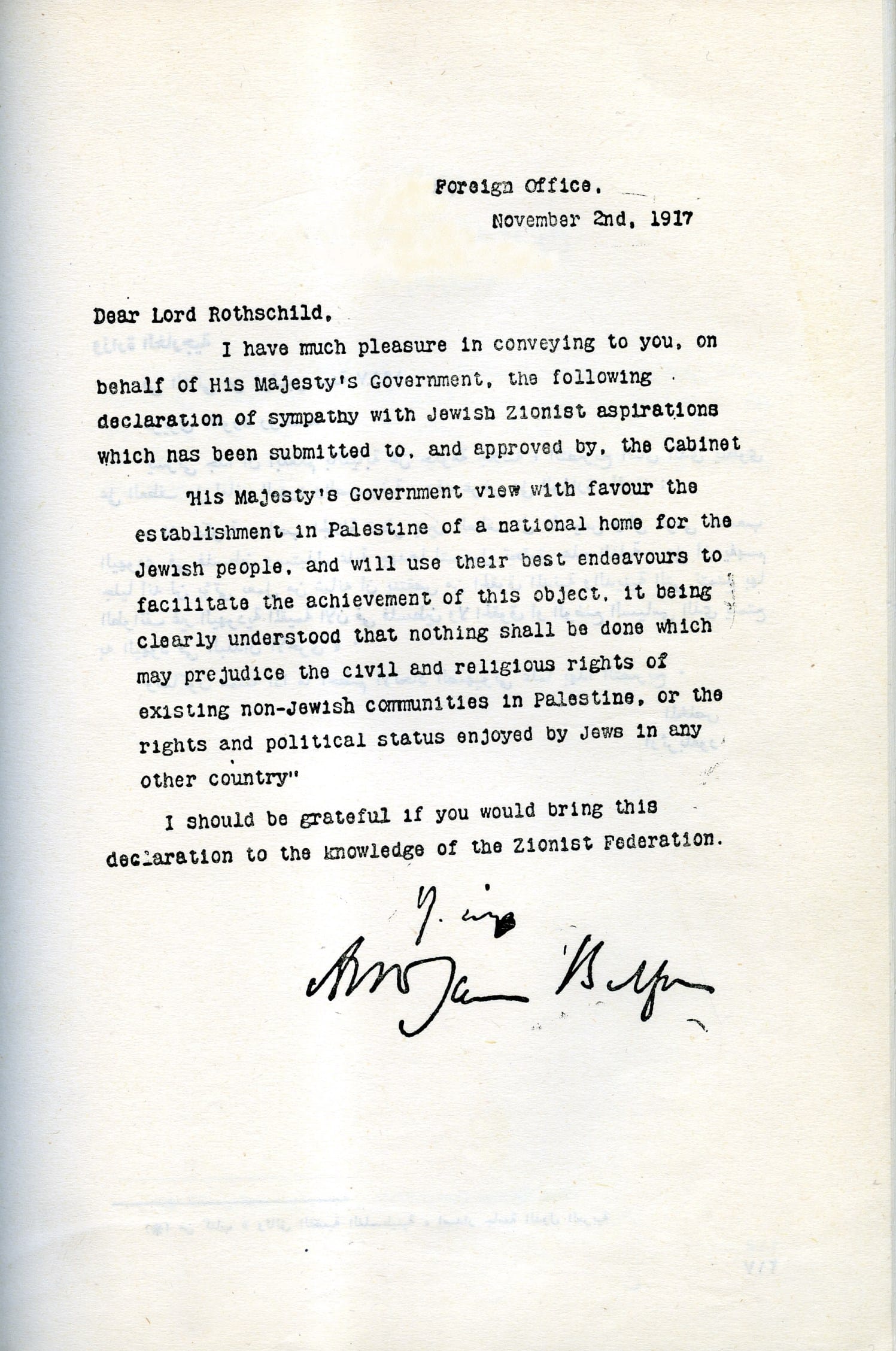Britain’s Greens Demand Justice: Pass Motion To Proscribe the IDF as a Terrorist Organisation, Apologise for Balfour, and End Complicity

In a bold, unequivocal move that resonates far beyond the confines of party politics, the Green Party of England & Wales has passed a sweeping motion demanding that the United Kingdom proscribe the Israeli military (the IDF) as a terrorist organisation - and simultaneously call on the British state to issue a formal apology for the Balfour Declaration of 1917.
For many Palestinians and solidarity activists, this is not mere rhetoric: it is a rare instance of a mainstream Western party acknowledging both the historical wound and the ongoing violence to which Britain remains complicit.

The Motion Passed at Bournemouth
At its recent conference in Bournemouth, Green Party delegates voted through a motion calling for:
- the Israeli military (IDF) to be banned under UK counter-terrorism law, so that participation in or praise of its operations could be criminalised;
- a formal apology from the British government to the people of Palestine for the Balfour Declaration;
- an immediate cease of Israeli military operations in Gaza, a withdrawal of forces, and the guarantee of humanitarian access - food, water, medical supplies - to civilians;
- support for the International Criminal Court’s case of genocide, and a full arms embargo on Israel;
- the end of British training, intelligence sharing, and spy-plane flights over Palestinian territory;
- use of British shipping resources to deliver aid to Gaza and the West Bank;
- deployment of a UN peacekeeping force into Gaza and the West Bank to protect Palestinian lives.
Backing the motion was Green Party leader Zack Polanski, who emphasized that silence was no longer tenable. In his address, he warned that to legitimize one side’s massacre is to endorse a grave crime. He accused the prevailing Labour government of acting as “an active participant in the murdering of the Palestinians” through arms sales, intelligence collaboration, and diplomatic cover.
Polanski also pointed to the UK’s recent decision to designate the pro-Palestine direct action group Palestine Action as a “terrorist organisation,” calling it a hypocrisy. He argued that it is absurd to criminalise protest at home while failing to criminalise state violence abroad.
By pushing for proscription of the IDF, the Greens hope to attach legal weight to what many civil society voices have long insisted: Israel’s military campaigns, bombardments, house demolitions, and displacement of entire populations constitute acts of terror against a civilian people.

The Balfour Declaration: Britain’s Original Crime
The Greens’ demand for a UK apology hinges on the Balfour Declaration, a mere two-paragraph letter from Britain’s Foreign Secretary Arthur Balfour to Lord Rothschild in November 1917. In that statement, Britain pledged its “sympathy with Jewish Zionist aspirations” and committed to “nothing shall be done which may prejudice the civil and religious rights of existing non-Jewish communities in Palestine.”

In practice, that caveat was empty. Over the following decades, Balfour became the ideological foundation for a settler colonial project that dispossessed the indigenous Palestinian population, fragmenting their lands, restricting their movements, and imposing a regime of inequity.
By calling for a formal apology, the Greens confront the colonial legacy that still echoes - the dispossession, the Nakba of 1948, and the ongoing “incremental Nakba” enacted through land expropriation, settlement expansion, and military occupation. The motion frames the 1917 document not as an abstract historical footnote but as the opening act in a century of catastrophe for Palestine.
The Greens are pushing Britain to do more than symbolic atonement: they demand that the British state acknowledge its role as instigator and architect of a colonial project born in London’s drawing rooms.
Why This Matters - And Why It’s Radical
To some critics, the Greens’ proposals may appear sweeping or even unrealistic. But for Palestinians and the anti-colonial movement, they are profoundly moderate - even overdue.
This is the first time a political party in England & Wales has formally proposed the criminalization of the Israeli military and tied it to Britain’s foundational guilt. That step alone breaks decades of impunity. It turns the lens back on Britain’s role: not as a neutral or benevolent actor, but as one deeply invested in the dispossession.
By demanding legal, diplomatic, and material actions - from arms embargoes to peacekeepers - the Greens reject the notion that solidarity must be merely symbolic. Their platform seeks to embed accountability, protect civilian lives, and shift power.
Voices on the Ground and Beyond
While the motion originates in Britain, its implications resonate across Palestine, the global solidarity movement, and among Jewish critics of the occupation.

Some voices in British Jewish and Palestinian solidarity spaces welcomed the move as long overdue - seeing in it not merely a political gesture but a moral realignment. Others warned that it could trigger backlash or accusations of antisemitism, underscoring how fraught any critique of Israel remains in British public life.
On the Palestinian side, many see it as a welcome evolution: from moral statements to political leverage. To advocates in Gaza, Ramallah, and refugee camps, it signals that even Western parties can be pressured into confronting imperial complicity rather than deferring to Israel’s narratives.
Intellectuals like Ghada Karmi have argued that Israel cannot be allowed to continue its project indefinitely - that it must face resistance not only militarily but in every domain: political, cultural, moral. Though not directly part of the Greens’ motion, such ideas create the moral soil in which this motion grows.
Historical Context: From Mandate to Occupation
To understand the stakes, one must grasp the arc from Mandate Palestine to the ongoing occupation.
After World War I, Britain received the League of Nations Mandate over Palestine. The Balfour Declaration was grafted into the legal framework of that mandate. As Jewish immigration increased, tensions mounted between settlers and indigenous Palestinians, culminating in revolts, suppressions, and ultimately the Nakba of 1948, when over 700,000 Palestinians were expelled or fled in fear.
The UN’s partition plan of 1947 granted the Jews a majority of land even while they were a minority in the population - a plan Palestinians rejected. Then in 1967, Israel captured the West Bank, Gaza, East Jerusalem, and Golan Heights, launching 56 years (and counting) of military occupation, settlement construction, and control over Palestinian life.
Under successive British governments, arms, technology, logistics, intelligence, and diplomatic cover flowed to Israel. British foreign policy has long claimed to support a two-state solution, but in practice has maintained a posture of strategic alignment with Israel.
Hence the logic behind the Greens’ motion: if Britain helped birth the catastrophe, it must now be held to remedial account.
What Could Come Next - Obstacles and Possibilities
Passing the motion is only the first step. Translating it into legal and political force will face intense resistance from multiple quarters:
- Parliamentary Politics: The Green Party is small in Westminster; they cannot enforce legislation alone. Winning cross-party support or public pressure will be vital.
- Security and Intelligence Lobbies: The UK’s deep interlock with Israeli military and intelligence agencies will resist any attempt to sever ties.
- Public Discourse & Smear Campaigns: Expect accusations of antisemitism, delegitimising the motion as extremist - a familiar pattern faced by pro-Palestinian activists in the UK.
- International Law & Enforcement: Even if Britain passes laws, enforcing them - e.g. on arms exports, trade, or criminalisation of praise for IDF - requires political will and institutional realignment.
Yet the possibilities are potent. The motion could galvanise civil society, shift media frames, and embolden other parties in Europe to revisit their relationships with Israel. It could also push Britain toward a policy rupture: not merely criticism of Israeli actions but structural sanctions and accountability.

A Moral Reckoning, Not a Political Stunt
What the Greens have done is more than tactical politics: they have invited Britain to a moral reckoning. Their motion refuses the comfortable posture of abstract condemnation and demands concrete action.
To apologise for Balfour is not to dwell in history, but to admit that history is active - its legacies still bloodied in Gaza, the West Bank, the refugee camps. To ban the IDF is not to demonize every Israeli human being, but to hold a military apparatus accountable. To call for an arms embargo or to withdraw training is to ask Britain to cease being an accessory to genocide.
In this framing, solidarity is not optional, but a duty. The Green Party has chosen to give voice to that duty in institutional form.
Will it be enough? Not yet. But for Palestinians who have endured dispossession, siege, bombing, displacement, and silencing for generations, the day when a British party recognizes the violence as terror - and the author of that violence as a culpable actor - is a step toward justice.
